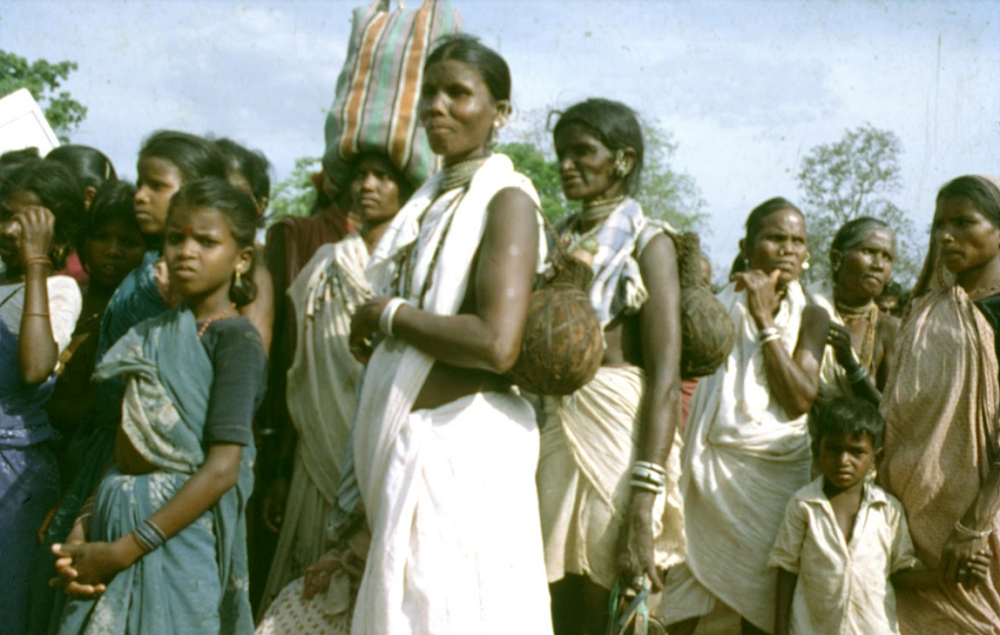


“The forest is our bank”, Devaji explains, sitting in his office in the village Ghodezari, surrounded by the dense and deciduous Dandakaranya forest of Gadchiroli district in Maharashtra, 1,000 km east of Mumbai, in Central India. “We must ensure it remains well-funded,” he adds. It was a startling statement from this 35-yearold tribal friend of mine and I could not but smile thinking about the banking crisis in India.
Devaji’s is an extraordinary story. Post the demise of his father, Ramsu Pada, who was a famed priest for several Adivasi villages, Devaji assumed the leadership of 50 remote villages and 10,000 Adivasis at the age of 25. His goal was to secure community forest rights (CFR) for the villages whereby the Adivasi villagers are handed over the ownership of the forest surrounding their villages, including the rights to sell minor forest produce directly to the highest bidder. The aim of enforcing CFR is to undo the historic injustice inflicted upon them by the British and then the Indian State which nationalised forests. CFR in turn plays a pivotal role in conserving the forests, improving the economic condition of the Adivasis of Gadchiroli and ultimately establishing grassroots democracy.

There is no dearth of adversaries though. Over the past 10 years, Devaji has braved the inept political leadership in Gadchiroli, the Forest Department’s colonial-minded bureaucracy and the cartel of deceiving bamboo and tendu patta (leaves used to roll beedi) contractors who have been fleecing Adivasi for several decades by purchasing forest produce at ridiculously low prices, and above all, navigated the minefield of the raging battle between the Left-wing extremists and the police in Gadchiroli. It is a heroic struggle I have been fortunate to witness.
“What have we achieved over 10 years?” I ask. He is circumspect. “Well, not much, but we have secured forest rights for all the villages and individuals. We now hold regular Gram Sabha meetings involving women, our decision-making is by consensus, and proceedings are meticulously documented. This year we have also earned approximately Rs 5 crore from selling tendu. We have opened bank accounts for all adults, secured PAN cards for all villages and rigorously kept audited accounts in Tally.” He is a master of understatements.
I wonder, what drives him? As Daniel Pink underlies in his excellent book Drive, people are motivated by having autonomy, mastery and purpose. CFR provides the Adivasis with these: Autonomy to manage their forest, mastery over knowledge and skills to conserve the forest as their ‘bank’ and purpose to improve their lives. Of course, similar to the British questioning the ability of the Indians to manage India, there was/is no dearth of naysayers questioning the competency and commitment of Adivasis towards managing and protecting forests. Devaji is a living example of how wrong the naysayers are.
“But how will you protect and enrich your bank?” I question. His face displays a firm resolve when he says, “We cannot be greedy, cutting bamboo indiscriminately every year for money or encroaching forest for paddy cultivation. We must fell bamboo only in 3 yearly cycles, ensuring that the vaste (young shoots of bamboo) are preserved and can grow. We must develop bamboo nurseries and promote other minor forest produce as mahua, lakh, charoli, behada, hirda, amla and dink so that we are not stuck with the monoculture of bamboo and tendu.”
I marvel at his strong bond with the forest. If integrity is defined as integration with your surroundings, Devaji has no parallel. He lives and breathes the forest. I contrast his relationship with the trees against my own traumatic experience of the botany of ferns I was forced to memorize, kicking and screaming, in school. Mahatma Gandhi pioneered the ‘Nai Talim’ system of education, whereby one learns through socially useful productive actions, assimilated in the immediate environment. Several young Adivasi sitting around us were learning about forest and how to protect it through Nai Talim, while charting their path towards emancipation.
“So, what are our challenges for the next 5 years?” I probe him. His eyes shine. “To learn and partner. We need technical training for our biodiversity protection and promotion, legal training to strengthen our Gram Sabhas, financial training to save our money effectively, engineering training for developing water bodies, market training to deal with the contractors effectively, skill training so we don’t just sell bamboo but create it into products, computer skills to be connected with the world and finally, leadership training to develop our second line,” he answers. Daunting agenda, he confesses, but if not now, then when? I realise (without him saying so explicitly) that Devaji and the Adivasis of Gadchiroli are ultimately conducting a living democratic experiment, weaving their empowerment and environmental conservation together.
Returning to Shodhgram, my home, 40 km from Ghodezari, I am moved, awed and inspired. I draw personal lessons from my meeting with Devaji. It is said, “A politician is a fellow who will lay down your life for his country.” As a selfproclaimed environmentalist, am I similar? Extolling the virtues of the environment, pampering my ego by declaring my commitment to sustainability, but in reality expecting a miracle where others change their lifestyle to protect the environment. True effort to sustain the environment cannot be remote, it has to be around me, with me, changing my life, and reducing my wants. As Devaji lives. That is the only choice even if it is hard.
Because the alternative is as this African poem describes poignantly:
Sahara is creeping southwards and southwards.
Slowly but relentlessly, Sahara is creeping southwards and southwards.
Don’t laugh, Oh fools in the North,
The Earth is round.
Dr. Anand Bang is Advisor to Tata Trusts, Joint Director for SEARCH, an NGO working in Gadchiroli for 35 years, and Advisor to Ex-CM of Maharashtra. Edited: By Ambika Hiranandani.